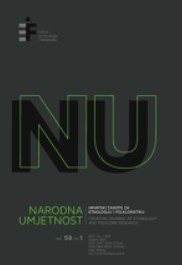DISTANCE LEARNING AND NEW FORMS OF DISCIPLINE DURING THE PANDEMIC
DISTANCE LEARNING AND NEW FORMS OF DISCIPLINE DURING THE PANDEMIC
Author(s): Barbara Turk NiskačSubject(s): Security and defense, School education, State/Government and Education, Health and medicine and law, ICT Information and Communications Technologies, Distance learning / e-learning
Published by: Institut za etnologiju i folkloristiku
Keywords: distance learning; surveillance capitalism; human capital; COVID-19 pandemic;
Summary/Abstract: In the 19th century, compulsory education was introduced as a means of discipline within a new work ethic formed in the moral discourse of productivity and the state’s preoccupation with increasing profits. During the COVID-19 pandemic, the compulsory schooling of children in Slovenia moved into the homes with the help of distance learning and technological solutions made possible by the digital revolution. As managing the shift to distance learning was left largely up to schools with little support from state structures and since much of the responsibility fell on parents, especially those with younger children, the Minister of Education publicly proclaimed students the corona winners of knowledge, winners of our and future times. Distance learning, however, cannot be considered in isolation as the pandemic changed how we organise all of our daily life. Each in their own way, families were confronted with coordinating their children’s distance learning, family obligations, work, and leisure. By analysing the reorganization of family daily life, the issues of protecting the privacy of students and their families, and the functioning of online market mechanisms, the paper presents distance learning as a new form of disciplining children between entrepreneurial work ethics, digitalisation, and biopolitics.
Journal: Narodna umjetnost - Hrvatski časopis za etnologiju i folkloristiku
- Issue Year: 58/2021
- Issue No: 1
- Page Range: 85-106
- Page Count: 22
- Language: English

